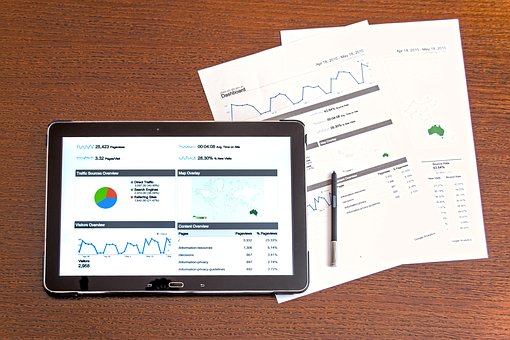Dailycsr.com – 11 August 2017 – The Governance and Accountability Institute Inc. conducted a study which revealed that the companies following the framework set by “GRI’s sustainability reporting” deliver “higher quality disclosures” in comparison to the ones who do not follow GRI framework.
The higher data quality enables the respective companies and their stakeholders as well as the investors to take more informed decisions that drives home dually the “bottom line and sustainable development”. Moreover, the Governance & Accountability Institute has partnered the research team of “CSR-Sustainability Monitor” under the “Weissman Center for International Business, Baruch College”, whereby the duo seeks to combine their respective sets of “Big Data”.
Examinations were conducted by analysts wherein “572 large-cap companies’ reports” that were published in the year of 2014, were scrutinised for “information and degree of verification provided”, while the resulting scores were based on eleven disclosure “contextual elements”. Here is the list of those eleven elements mentioned by the Ethical Performance:
The higher data quality enables the respective companies and their stakeholders as well as the investors to take more informed decisions that drives home dually the “bottom line and sustainable development”. Moreover, the Governance & Accountability Institute has partnered the research team of “CSR-Sustainability Monitor” under the “Weissman Center for International Business, Baruch College”, whereby the duo seeks to combine their respective sets of “Big Data”.
Examinations were conducted by analysts wherein “572 large-cap companies’ reports” that were published in the year of 2014, were scrutinised for “information and degree of verification provided”, while the resulting scores were based on eleven disclosure “contextual elements”. Here is the list of those eleven elements mentioned by the Ethical Performance:
- Chair’s / Executive Message
- Environment
- Philanthropy & Community Involvement
- External Stakeholder Engagement
- Supply Chain
- Labor Relations
- Governance
- Anti-Corruption
- Human Rights
- Codes of Conduct
- Integrity Assurance
According to the findings among the “large-cap” corporate organisation, eighty five percent of them have turned to GRI framework, whereby making a “big difference”. Giving an explanation the chief executive of GRI, Tim Mohin, said:
“The results of this study highlight the reason we promote the use of the GRI Sustainability Reporting Standards. They help companies disclose higher quality sustainability information. Higher quality information leads to better decision making. And that is the whole purpose of sustainability reporting.”
The main difference between both the categories of companies, one GRI compliant and the other non-followers, lie in the former’s “comprehensiveness and depth of information offered” in areas like “human rights” among others, opens an avenue for “third-party verification”. Non- GRI compliant reports tend to be “more narrative and less quantitative”. Governance and Accountability Institute’s co-founder as well as the executive vice-president, Louis Coppola, stated:
“The simple fact is that standardized sustainability reporting helps companies and its stakeholders, including investors to better utilize the information disclosed for decision making. Companies not following the GRI framework, by far the most commonly used sustainability reporting framework in the world, are consistently out-classed by their GRI reporting peers.”
The results seem to be encouraging, while one can move further into the road to increase the “quality of reporting”, as the majority of the industry look towards GRI Standards to “pave the way for more concise, consistent, and comparable reporting”. With a standardized report frame in the field of sustainability will enable “higher quality data” which in turn will lead to “more effective decision making”. Furthermore, Mohin added:
“We want companies and their stakeholders making decisions that lead to profits, but also to the preservation our precious resources and human rights. These findings are encouraging but they also demonstrate that we still have a lot of work to do in order to achieve sustainable development.”
References:
http://3blmedia.com


 GRI Framework of Reporting Allows 85% of Companies To Disclose ‘Higher Quality’ of Data
GRI Framework of Reporting Allows 85% of Companies To Disclose ‘Higher Quality’ of Data





 Companies
Companies